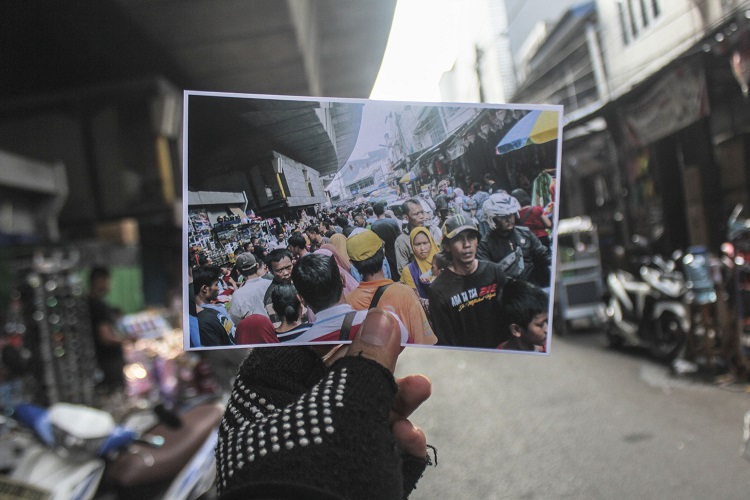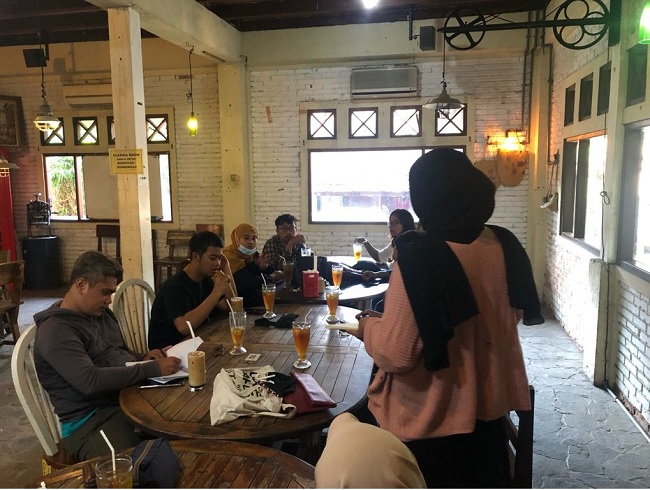In the absence of protocol or regulation the transgender community is setting their own standards for ethical research practice
Zara Aisyah Fauziah
Versi Bh Indonesia
Communities of transgender women (transpuan) are a group of Indonesians who are commonly researched and represented in a range of forums. Foreign and Indonesian researchers and journalists, as either a component of their study or as part of their job, frequently contact communities of transpuan, requesting interviews or inviting them to participate in long-term ethnographic research.
From HIV-related medical research to sensational journalistic accounts, transpuan are some of Indonesia’s most experienced ‘research subjects’. However, transpuan are not the powerless victims of media producers or researchers. Transpuan are able to alter the frame of reference to address discriminatory, stigmatising and exoticising depictions of their lives, as was highlighted when Ferdian Paleka, an influencer, was arrested after filming a distasteful prank involving transpuan in Bandung. As transpuan based in Jakarta, myself and colleagues at Sanggar Swara – a community-based advocacy organisation for transpuan – are able to offer a distinctive perspective on our experience of research.
In this article, I will focus in particular on our experiences of being the research subjects of final year bachelor students in Indonesia. All Indonesian students, in a range of disciplines, must complete a short thesis (skripsi) in order to complete their degree. Almost all students are also required to undertake their own data collection as part of their degree, which means that they mostly undertake interviews. We have extensive experience of students who undertake ethnographic research about transpuan.
We also have our own research experience. During the COVID-19 pandemic, we interviewed our transpuan friends and community members to hear their stories directly. Starting with a respectful and paced introduction – so that transpuan were not forced to suddenly reveal their hardships – we were able to create an environment where transpuan felt comfortable to talk about their needs at the beginning of the pandemic. We found that many in our community had lost their jobs.

A number of transpuan work in the informal economy, including as sex workers and in salons. The operation of these businesses was restricted during the implementation of strict public health measures during the pandemic. Having discovered and recorded this we wrote an article, which was shared by the Crisis Response Mechanism, a consortium of 300 lesbian, gay, bisexual, transgender, queer and intersex (LGBTQI) people in Indonesia. This publication was useful to transpuan throughout the Jakarta region and, at the time, led to many donations to support the community.
Being a research subject
We have often found that students who undertake ethnographic research do not explain their research or let us know what they want us to talk about beforehand, Zarabut simply ask us to tell our story. Most of the research that I have been invited to participate in is online, in the form of interviews. There is rarely a process of getting to know one another, and neither an explanation of what the research is about nor an effort to contextualise the research. Even when we do get to know the researchers a little, there is often no reporting back to share any output from the research. After the interview or discussion, I am often not sure of what the results of our discussion were or what they were turned into, because they do not share the results with me.
We have many stories of poor research practice experienced by the community, both during and after the pandemic. One transpuan friend was asked by students to chat at a café, but they did not even buy her a drink. This was in spite of the fact that my transpuan friend had given her time to speak with them. My friend was also under the assumption that some compensation would be given to cover her transportation expenses. No payment was given and, what is more, after the data had been collected the students did not communicate with her again.
In another case, a transpuan friend was taken to a café to meet three students. They asked if she would like to order food or drink. When the bill came, she had to pay for herself. Another friend recounted how, after a lengthy online discussion lasting around two hours for which she used her own mobile internet, the student only said ‘thank you’ and did not offer any compensation. We have also heard stories where students attempted to conduct interviews with LGBTQI communities, and particularly with transpuan, while they were working as street performers. In the end, several transpuan friends who have participated in such research feel that they have wasted their time. This will potentially have an impact on ethnographic research in the future as community members will be reluctant to get involved.

If you are going to do research including interviews and observation with our community you have to behave politely. If you want to get to know us over the course of several days, you have to know how busy we are or what our other commitments are. When you have finished the research, we want to know what the impact of that research is. At the very least it is important that we also gain something from the research, such as a copy of the article or a summary of the results of the research. We would also appreciate the opportunity to contribute to the processes of writing, editing or critiquing, based on our experience.
Valuing our time and input
These experiences demonstrate that transpuan have been subject to poor research practices not only once or twice, but several times. Those who wish to undertake ethnographic research with transpuan (or whoever), must understand that how the researcher behaves during the research and once the research is completed will affect the community’s attitude towards research and researchers in the future.
The time that we put into research is important, because this is time that we may otherwise be using to work. At the very least, students and researchers should stay in contact following our discussion so that we can know the results of the discussion and what form the research took. We have seen that this more ethical research practice is possible, yet we have often found that students just disappear after completing their research with us.
Due to these experiences, Sanggar Swara has recently adopted stricter conditions with students who would like to do research involving members of our community. We ask for details of the research aims and purpose, in advance, and ask what results we might be able to obtain from it – for instance, completed ethnographic research could be included in Sanggar Swara’s portfolio on its own website. At the very least, we ask that researchers with whom we have generously shared our insights and experiences will, in turn, share the results of their research with us.
Zara Aisyah Fauziah is a transpuan (transwoman) who works at the Swara Sanggar community organisation and was 1st Runner Up at the 2020 Transchool. Zara's current focus is on assisting members of the transpuan community to access their rights together with Sanggar Swara. Zara graduated from the Bina University Informatics Faculty in 2015 majoring in broadcasting. Zara is also active in campaigns related to transpuan rights on social media via the @TranschoolSwara platform.












